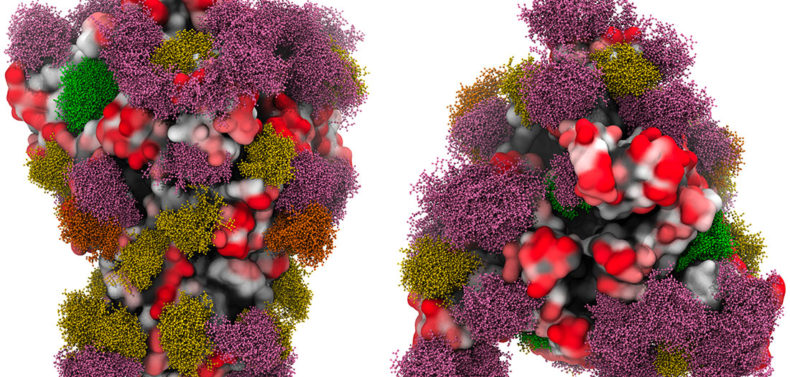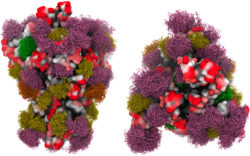COVID-19 continues to spread in Athens-Clarke County at an elevated rate, although community spread has plateaued, according to data from the Georgia Department of Public Health, alongside wastewater monitoring data from professor Erin Lipp’s lab at the UGA Center for the Ecology of Infectious Diseases.
According to DPH’s weekly update July 13, the seven-day rolling average of new cases rose from 26 per day a week ago to 33. While DPH data shows a slight decrease in new cases last week compared with the previous week, that was likely a result of testing facilities being closed for the July 4 holiday and lag time for reporting new cases. With the prevalence of at-home rapid tests that are generally not reported officially, the data on new cases is a vast undercount of the true viral levels in the community.
To date, there have been 27,825 confirmed COVID-19 cases in Clarke County since the beginning of the pandemic.
Wastewater monitoring updates last week, which give a less dated and more accurate picture of viral levels in Clarke County, showed viral levels that were nearly unchanged from the previous week and continued to show elevated viral counts—similar to the peak of the Delta surge in August 2021.
The percent of positive cases for the last two weeks in Clarke County remains elevated at 29% as of July 6. A positivity rate of over 5 is an indication that not enough testing is being done and that cases are going uncounted.
Clarke County recorded its first COVID-19 death in nearly a month on July 9, bringing the cumulative total to 225.
While new cases remain elevated, so far this wave is not severely impacting hospitals. Hospitalizations among Clarke County residents have remained steady, averaging 22 people admitted each week for COVID-19. To date, 1,364 Clarke County residents have been hospitalized for the virus.
Regional data, which includes patients from surrounding counties and both Clarke County hospitals, shows a slight increase in patients this week, with 37 patients, or 6.1% of all patients in Region E, currently hospitalized for COVID-19 as of July 13, 31 of them in the past week. A week ago, 35 patients were hospitalized for the virus, and 27 landed in the hospital two weeks ago. Intensive care units are at 81% capacity this week, with 67 patients occupying beds as of July 13. That’s up from 58 patients two weeks ago but down from 71 last week.
The CDC’s Community Transmission Levels data for Georgia is bright red this week, with most of the state’s counties with high levels of transmission. According to public health expert Amber Schmidtke, this map can “be thought of as the risk that you will be exposed to COVID-19 in your county if you’re in a high-risk situation (indoors, crowded, poor ventilation, etc.).” Approximately 95% of counties in the U.S. are in the high or substantial risk category at this juncture.
The CDC’s Community Levels Map shows a much different picture of the country, though. This map, Schmidtke said in her pandemic update last week, can “be thought of as the risk that you would have a hard time accessing a hospital bed if you needed one.” The map is based on recent case rates, COVID-19 patient census and new COVID-19 hospital admissions. At this point, 19.5% of counties in the U.S. are considered orange or at high levels. Athen-Clarke County and most of the counties in the region are green and at a low level of risk.
Vaccination levels remain stagnant, with booster dose rates slowing down now as well. As of July 8, 70,075 Clarke County residents, or 56%, have received at least one dose of vaccine, and 64,142 residents, or 51%, have been fully vaccinated. In addition, 33,308 booster doses have been administered.
One bright spot in the data was the vaccination increase for children ages 6 months to 4 years. While the age group was only given emergency use authorization to receive the vaccine a few weeks ago, 97 Clarke County children in the age group have received at least one dose of vaccine.
Like what you just read? Support Flagpole by making a donation today. Every dollar you give helps fund our ongoing mission to provide Athens with quality, independent journalism.










